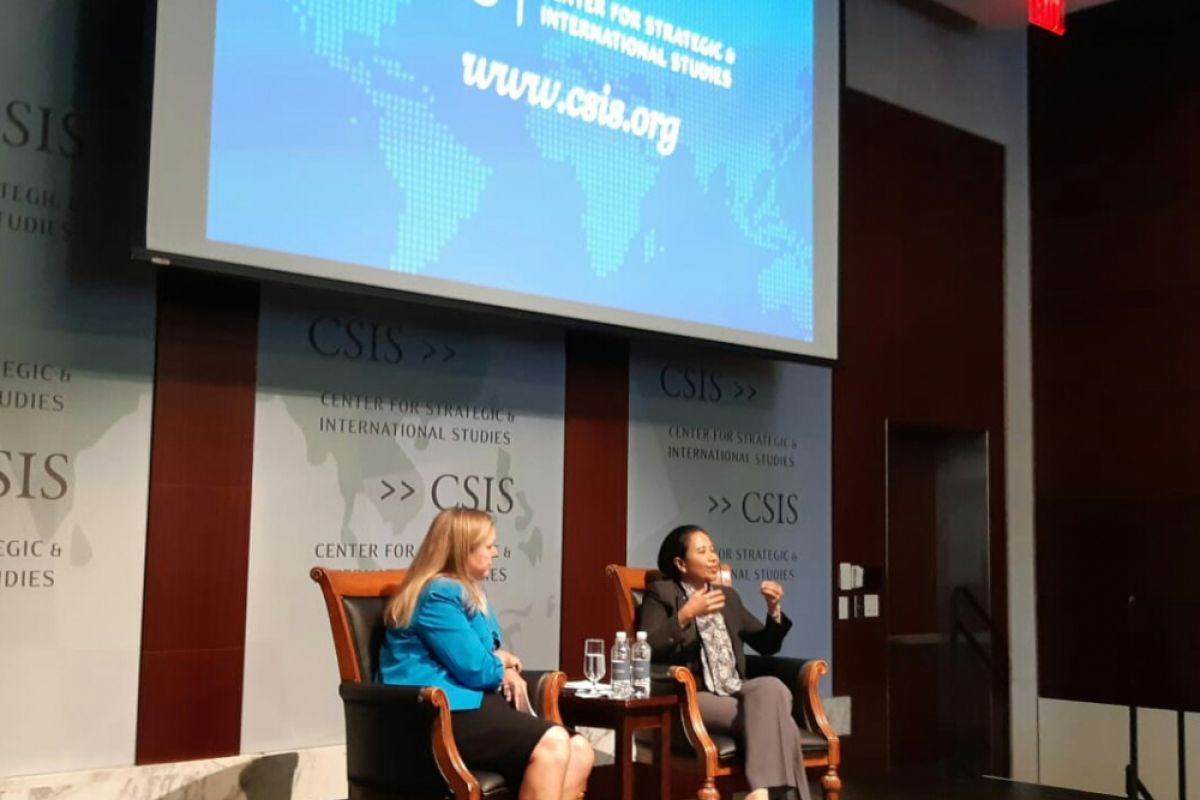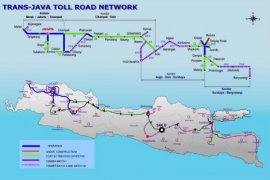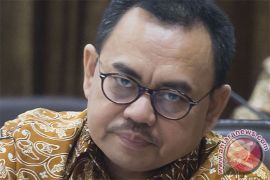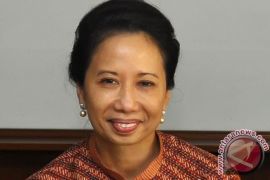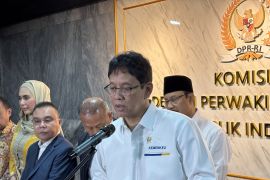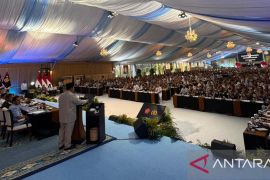Rini said currently Indonesia is the 15th largest economy in the world and the third fastest in growth among the G20 member countries.
The economy of Indonesia has been stable and healthy with fiscal debts of 27 percent of its Gross Domestic Product (GDP). The country recorded an improvement in ease of doing business from the 120th to 91st in ranking.
More noteworthy is that electrification ratio, which has risen to 95 percent from 84 percent, poverty and unemployment rates have been cut and the economic gap has narrowed, she said.
"The achievements give greater hope that the future would better and brighter for Indonesia," an official statement issued here on Tuesday quoted Rini as telling the forum.
Rini also told the forum that Indonesia has been ready for digital economy and the support from 3G and 4G telecommunications technology brought Indonesia to the era of digitization.
In the past five years internet access has surged from 22 percent to 50 percent and financial technology is growing offering various and wider financial services.
"We see big potential in digital economy and Indonesian state companies adopt digital system in a big way. We have begun transformation to digital system in all sector starting from the sectors of energy, finance, telecommunications , public services and logistics.
"We are confident this is only a beginning and we are hoping to see more innovations in the future," she was quoted as saying.
She went on to say the state companies aggregated an income of US$151 billion in 2017 or 15 percent of Indonesia`s GDP, according to the statement.
Publicly listed state companies represent 25 percent of the total capitalization in Indonesian Stock Exchange, and altogether the assets of state companies reached US$538 billion, she said.
"This means the total assets of Indonesia`s state companies as a group are larger than those of Temasek (of Singapore) and Khazanah (of Malaysia) combined," Rini said.
The total equity of state companies in 2017 grew strongly to US$179 billion from US$168 billion in 2016, with net profit climbing from US$12 billion in 2016 to US$14 billion in 2017.
Rini said since 2015 state companies have undergone transformation to increase their contributions to Indonesia`s economic growth in various regions.
The Ministry of State Enterprises has developed a strategy focusing on four pillars - creating synergy in all state companies, down streaming industry, increase in local content in all projects, integrating development business and developing financial self reliance, she said.
Citing an example she pointed to the electrification program to build new power plants with a total capacity of 35 gigawatts as one of Indonesia`s biggest program to be carried out by of the state electricity company PLN .
The electrification is aimed at accelerating and improving the ease of doing investment business in Indonesia with the guarantee of availability of power supply.
The government also is set to expand the power generating capacity using renewable energy sources including geothermal energy, wind energy and biofuel energy.
At the same time the government is launching a program to accelerate development of connectivity infrastructure with toll road and railway tracks.
In the past three years the country`s toll road has increased 33 percent in length to 1,092 kilometers from only 820 kilometers in 2014. The target is to increase the length to 1,580 kilometers in 2019.
The new toll roads would provide links between the western and eastern ends of Java and between the northern and southern tips of Sumatra.
"Meanwhile we are building various land transport facilities such as light rail transit (LRT) in Jakarta and Palembang. Brisk development is also in progress for air and sea transport facilities," the minister said.
Reported by Mentari Dwi
(TZ.SYS/B/H-ASG/A/F001) 25-07-2018 10:32:56
Reporter: Antara
Editor: Fardah Assegaf
Copyright © ANTARA 2018
